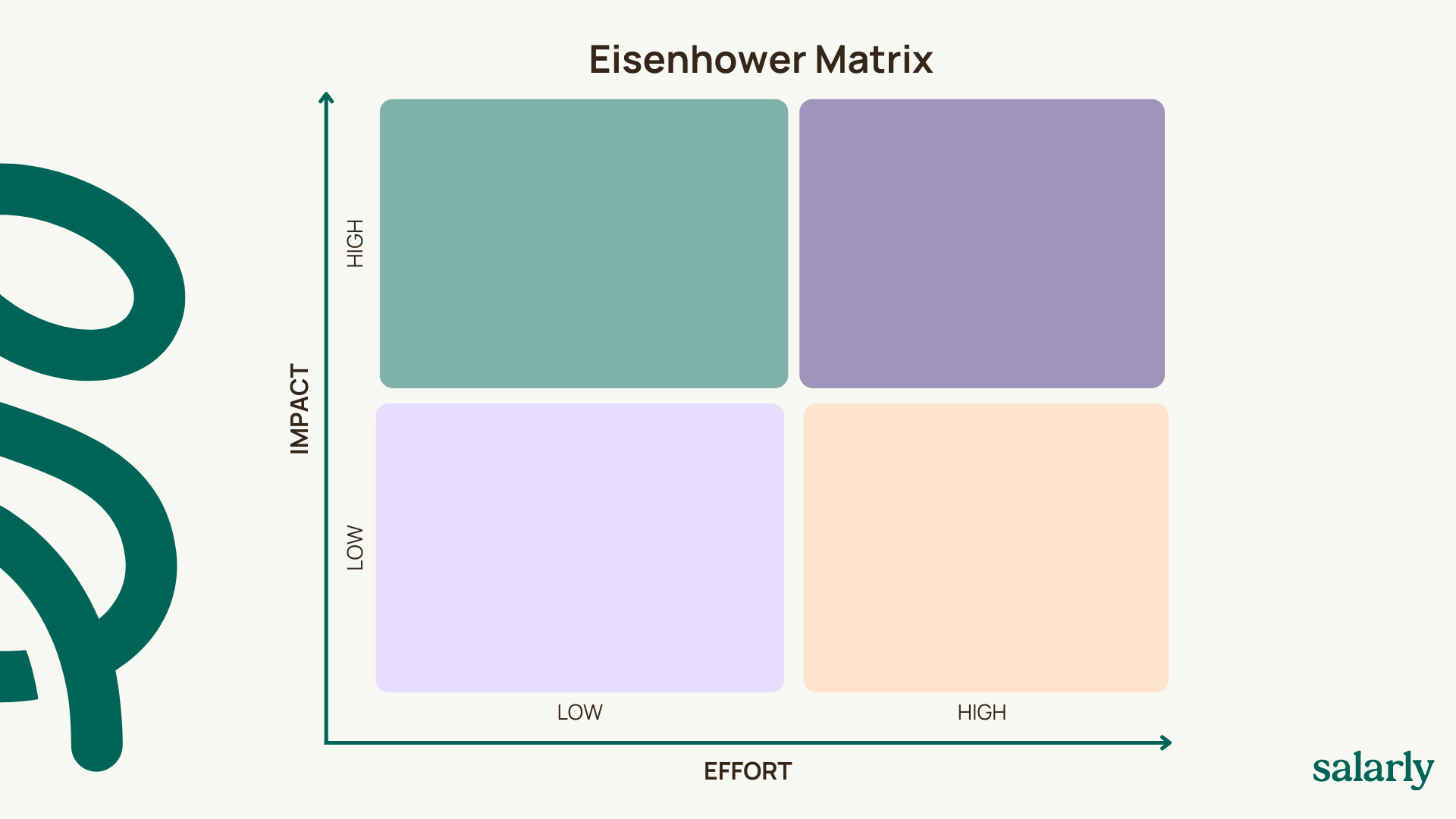Healthcare workers often face challenging workloads and unpredictable schedules, which can make time management for healthcare workers a daunting task. However, with the right strategies, achieving work-life balance in healthcare is possible. This guide covers proven techniques such as the Eisenhower Matrix, time blocking, and how to effectively delegate tasks and batch similar tasks. By mastering these skills, healthcare workers can reduce stress, boost productivity, and reclaim their personal time.
1. Prioritize Tasks with the Eisenhower Matrix
The Eisenhower Matrix is a valuable tool for healthcare workers juggling multiple responsibilities. This method categorizes tasks based on urgency and importance:
- Urgent and Important: Tasks like patient emergencies should be done immediately.
- Important but Not Urgent: Tasks such as continuing education can be scheduled for later.
- Urgent but Less Important: Delegate these tasks if possible.
- Neither Urgent nor Important: Eliminate tasks that don’t add value.
Using the Eisenhower Matrix helps you focus on what truly matters, improving efficiency and reducing stress.

2. Use Time Blocking for Better Focus
Time blocking involves setting aside specific blocks of time for individual tasks, ensuring they are completed without distractions. For example:
- Allocate time for patient consultations.
- Set a dedicated period for paperwork or charting.
- Reserve time for self-care and personal breaks.
By structuring your day around focused blocks of time, you’ll improve productivity and prevent burnout.
3. Delegate Tasks to Free Up Tim
Delegating non-essential tasks can help healthcare workers focus on higher-priority duties. Some examples include:
- Delegate charting to medical scribes.
- Assign basic patient care tasks to nursing assistants.
- Use automated tools like electronic health records (EHRs) to streamline workflows.
Delegating allows healthcare professionals to concentrate more on patient care, enhancing job performance and work-life balance.
4. Batch Similar Tasks Together
Constantly switching between different tasks decreases productivity. Batching similar tasks—such as responding to emails or reviewing patient records—can help you complete these activities more efficiently. For example:
- Group all administrative tasks into one time block.
- Schedule patient consultations at specific times to minimize interruptions.
Batching tasks helps reduce mental fatigue, ensuring that you stay focused throughout the day.
5. Take Regular Breaks to Recharge
Healthcare work is demanding, both physically and mentally. Scheduling regular breaks throughout the day is essential for maintaining focus and avoiding burnout. Consider:
- Using break reminder apps like RescueTime.
- Engaging in quick mindfulness exercises or deep breathing during short breaks.
- Incorporating stretching or walking to boost energy.
Taking even brief breaks can significantly improve your well-being and concentration during long shifts.
How Salarly’s Payroll-Linked Loans Can Support Time Management
In addition to managing daily tasks, managing finances efficiently can impact time management. Salarly’s payroll-linked loans offer healthcare workers a convenient solution for handling unexpected expenses. Benefits include:
- Automated repayments directly from your paycheck, reducing the need to track loan schedules.
- A simple application process, saving time compared to traditional loans.
By reducing financial stress, healthcare professionals can focus on their careers and personal well-being without distractions.
Time management for healthcare workers requires strategic techniques like the Eisenhower Matrix, time blocking, and batching tasks. When combined with effective delegation and regular breaks, these methods can significantly improve productivity and work-life balance in healthcare. Additionally, solutions like Salarly’s payroll-linked loans help alleviate financial stress, allowing healthcare professionals to manage their time more efficiently.
FAQs
What are the biggest time-management challenges healthcare workers face?
Healthcare professionals often struggle with heavy workloads, unpredictable schedules, and balancing patient care with administrative tasks.
How does the Eisenhower Matrix help with time management?
The Eisenhower Matrix helps prioritize tasks based on urgency and importance, allowing healthcare workers to focus on what truly matters.
What is time blocking and how does it help healthcare professionals?
Time blocking involves scheduling uninterrupted blocks of time for specific tasks, improving focus and reducing distractions.
Why is it important for healthcare workers to take regular breaks?
Regular breaks help healthcare workers avoid burnout, recharge physically and mentally, and improve focus throughout their shifts.
How can healthcare workers balance administrative tasks with patient care?
Healthcare workers can streamline administrative tasks by using electronic health records (EHRs), batching tasks, and delegating non-essential duties to support staff.











